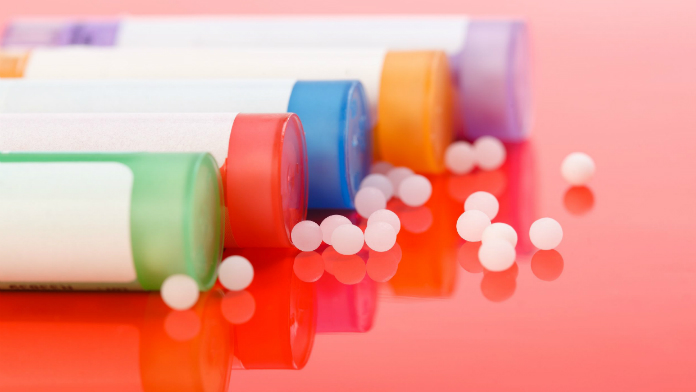Like is taken care of by likewhich for those who want to brush up on Latin means “Like cures like”. This was the inspiring principle with which the German physician Samuel Hahnemann at the end of the eighteenth century invented thehomeopathy. More than 200 years later, this therapeutic practice is completely discredited by medicine and scientific research. However it is still used by millions of people around the world. Sales of preparations are declining. However, they still move a market of several hundred million euros. Homeopathy fuels heated diatribes. He is the protagonist of successful books, dramatic news stories, confrontations between institutions. But let’s see where this all started from.
In this article
What do Italians think about homeopathy?
A recent survey on the knowledge and use of homeopathic products in Italy claims that 57% have used homeopathy to cure a disorder at least once in their life. In more than 8 cases out of 10 those who used it declared themselves satisfied. Most of them chose it to treat chronic diseases, while 27% to replace a therapy that hadn’t given the desired results. A quarter of those who rely on homeopathy do so to support sports practice.
Homeopathy: dilution and dynamization
How does the dilution take place?
Experimenting on himself the effects of a substance used against malaria, Hahnemann elaborated his doctrine. To cure a given disease, the substance must be used which in a healthy person causes symptoms similar to those observed in the patient. All of this, however, in infinitesimal doses. The active ingredient (which can be of animal, vegetable, mineral, chemical or biological origin) is diluted numerous times. For example, the preparations identified with the CH wording have a centesimal dilution. At each step, 99 parts of the solution are thrown away and the remaining hundredth part is diluted in another 99 parts of solution. All repeated 5, 7, 15, 100 or 200 times, depending on the preparation (5CH, 7CH, 15CH and so on). The same applies to dilution on a decimal (DH) or fifty-thousandth (LM) basis.
Dynamization
After each dilution, the solution is vigorously shaken to “dynamize” it and create new bonds between the molecules. According to homeopaths, the resulting solution would have the ability to activate a “self-healing response” in the body with the great advantage of not having side effects. According to the laws of chemistry and according to the analyzes conducted on the preparations, there is practically no trace of the active ingredient.
Different evaluation criteria
«The doctrine elaborated by Hahnemann arrived in a period in which it was said “more people die of treatment than of disease”». Joseph Remuzzi he is director of the Mario Negri Institute for Pharmacological Research in Milan. In the meantime, however, medicine has come a long way. The causes of diseases, viruses and bacteria are known, cells and DNA are studied, and the evaluation criteria can no longer be the same.
«There is only one medicine, and it is governed by a simple principle. If a cure has been rigorously tested and works, then it is accepted as medicine. We need lab data that suggests a mechanism of action, studies that show it doesn’t hurt and that it’s more effective than existing drugs. All this is necessary to test and sell a drug, and homeopathy does not meet any of these criteria.
Yet those who use it are willing to spend because they benefit from it and this is all the evidence that is needed, homeopaths underline. “Medical therapy is not measured on the basis of liking. In many cases, homeopaths are taken for ailments that would have passed over time anyway, or during treatment with other drugs, and we end up attributing the improvement only to the former. In homeopathy the effects are there, but they are no different from the placebo».
Decades of Homeopathy Investigations: What Do We Know?
Controlled, observational, randomized clinical trials, study reviews, and even review of study reviews have sought evidence of the efficacy and safety of homeopathic cures. For example, a meta-analysis of the National Health and Medical Research Council of Australia in 2015 reviewed 225 studies on homeopathy. In 2005 Mathias Egger, a Swiss epidemiologist, published on Lancet a comparison between 110 trials on homeopathic and 110 on conventional medicines. At least 15 Cochrane reviews (the international organization that aims to sum up scientific knowledge on a given treatment) are dedicated to the topic. They considered homeopathy, evaluating it for respiratory infections, asthma, dementia, labor induction, hot flashes during breast cancer therapies. In these and other important works, the answer was: there is no evidence that homeopathic preparations are more effective than placebo.
The placebo effect
«As far as we can tell today, homeopathy is only a placebo effect. At the moment there is no serious and rigorous experimental evidence demonstrating that an ultradilution can have therapeutic effects». As Fabrizio Benedetti, professor of human physiology and neurophysiology at the University of Turin, one of the leading placebo experts who has demonstrated its often extraordinary effects. «Placebus, (I will like you in Latin), meant a fake drug, given to the patient to please him more than for his therapeutic action. Today it is used as a term of comparison in trials to verify if a therapy is effective. We know that it is a complex phenomenon involving mind and body. Trust, hope, positive expectations can modify the nervous circuits in the patient’s brain and induce changes in many functions of the whole body”.
«The administration of a placebo can activate the release of substances such as endorphins, endocannabinoids or dopamine. In some circumstances, and to varying degrees from individual to individual, they make us feel better and improve symptoms if we are ill”.
Homeopathy: the doctor-patient relationship
If the placebo effect is related to feeling cared for, then it is clear how much it has to do with the doctor-patient relationship. Many analyzes have documented the link between the doctor’s dedicated time and ability to listen and the effectiveness of treatments. A few years ago, an American research measured the effect of the doctor’s degree of empathy even on the symptoms and duration of a cold in 350 people. «Often homeopaths dedicate time to the sick and listen to them. This – not the granules or drops – is medicine, good medicine. It should also be a central point in the training of doctors», adds Remuzzi.
Homeopathy harmless up to a point
If homeopathy is “fresh water” (paraphrasing the title of a famous book by Silvio Garattini on the subject), it means that it won’t hurt. Or not? “It’s not all harmless, turning to unconventional therapies not supported by evidence of effectiveness is an unnecessary cost but can, in some cases, also be a risk”. Susanna Esposito is full professor of pediatrics at the University of Parma. «The point is that families do not consider homeopathic medicines. Instead it is always important to discuss with the doctor, in the case of children with the pediatrician. A third of parents use preparations or supplements to prevent infectious diseases in their children. In some cases there have been harmful reactions to the preparations, which are not subject to the rigorous approval procedures required for medicines. In fact, the active ingredients are often unclear, as are the ways in which they have been tested and their safety has been verified».
Prevention or cure: however caution
If it is common to use homeopathy as a preventive measure, it is rarer and more dangerous to use it as a cure. “It’s serious, especially if you rely on phantom specialists who offer bogus approaches, often on the basis of non-validated tests, and perhaps convince you not to use conventional therapies because they are demanding,” says the pediatrician. «In my experience, for example, I have met families who were advised to use homeopathy to cure the systemic lupus erythematosus (LES). Or cases of neurological diseases, families devastated by the progressive pathology of a child who resorted to fundraising to be able to pay for unconventional treatments. It is very serious to invent stories about such painful situations ».
Homeopathy: what happens in other countries
European Union
Homeopathic preparations are regulated by the EU directive 2001/83/EC concerning medicinal products for human use. They are classified as “medicines”, sold freely, but can be placed on the market with a simplified procedure, without the experimental tests of all other medicines, in the event that:
- are taken orally or externally;
- specific therapeutic indications do not appear on the product label;
- are sufficiently diluted.
Italia
From 2020 it will be necessary to obtain the Aic (Marketing Authorization) which provides for an evaluation of safety (not efficacy) by the Italian Medicines Agency (Aifa). Homeopathic products are non-refundable and their purchase is the sole responsibility of the citizens. However, they can then request the deduction from the tax return as for other medical expenses.
United Kingdom
The British National Health Service (NHS) in 2017 included homeopathic medicines in the list of non-reimbursable medicines because they “lack scientific evidence of effectiveness”.
Spain
In 2018, the Spanish government announced an action plan to counter pseudoscientific therapies, including homeopathy, and exclude them from universities and hospitals. The request to revise the EU directive that defines homeopathic products as “medicines” also comes from Madrid.
France
The French Ministry of Health has announced that the reimbursement of expenses for homeopathic treatments (currently equal to 30% of the cost, 126.8 million euros in 2018) will be gradually reduced and canceled altogether by 2021. This follows the report of the Haute Autorité de Santé (HAS) according to which homeopathy “has not scientifically demonstrated sufficient efficacy to justify reimbursements”.
Germania
The KBV, the national medical insurance association representing 150,000 German doctors, said insurance companies should not cover homeopathic services.
United States
In 2017, the American Federal Trade Commission (FTC), which deals with consumer protection and competition, stated in its guidelines that over-the-counter homeopathic products without the support of solid scientific evidence can only be considered as “not deceptive” if it is clearly stated on the label that there is no scientific evidence of effectiveness and that all the information provided is based solely on nineteenth-century theories, today judged unacceptable by the vast majority of doctors.

